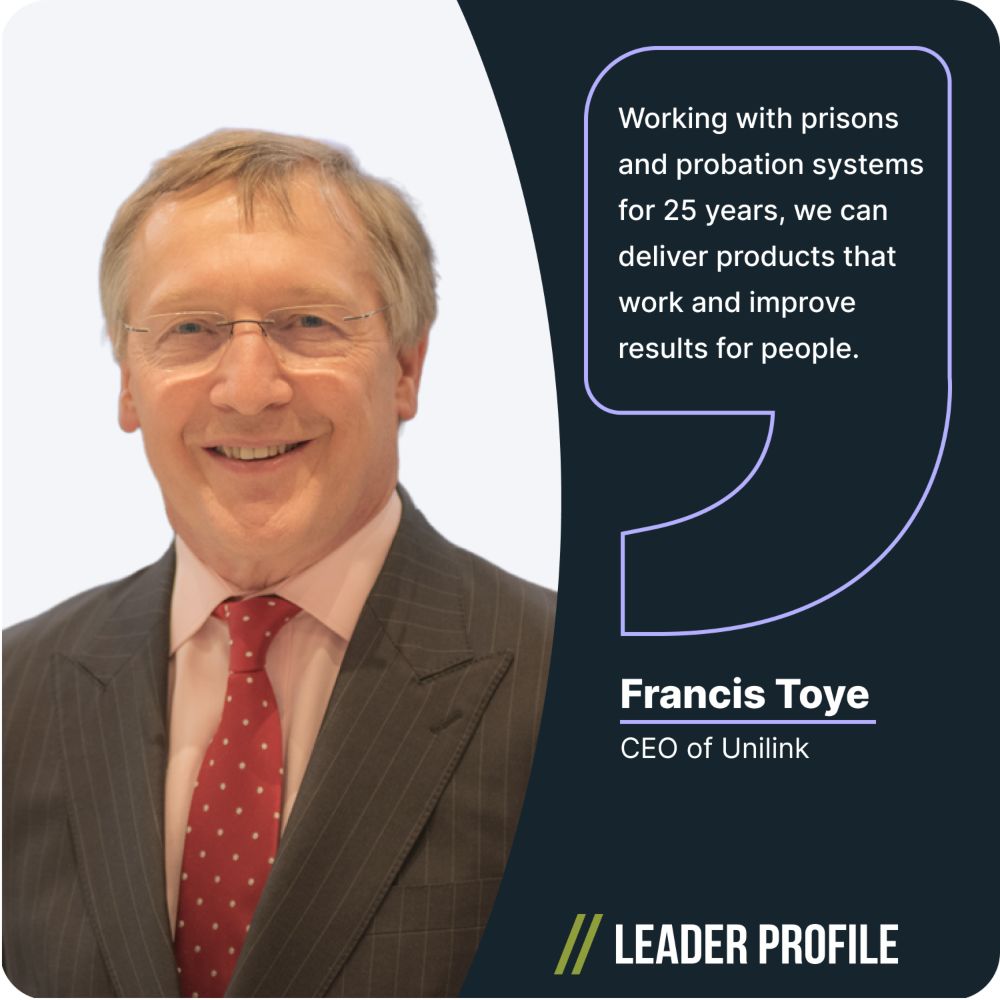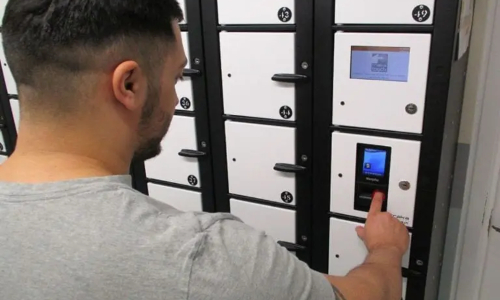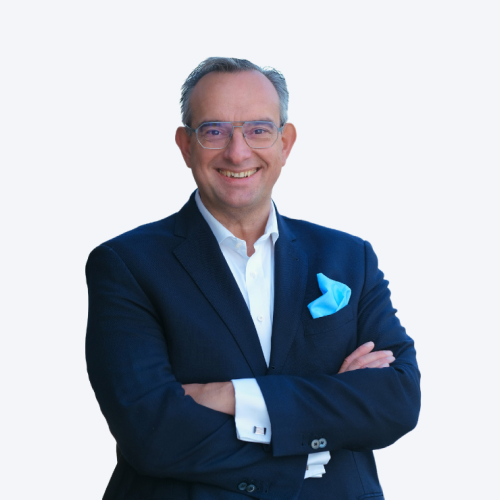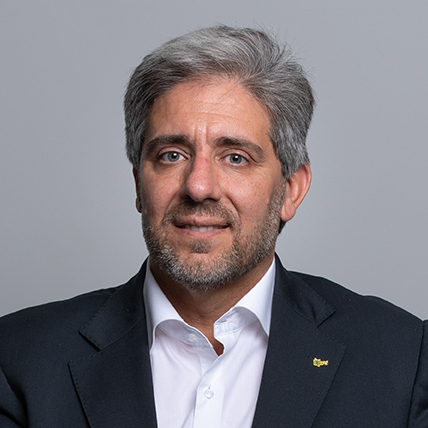
An inspiring look at the projects and contributions of leaders in the Justice sector
Welcome to the JUSTICE TRENDS // Leader Profile – Interview series, where we bring you the stories and insights of distinguished leaders in Criminal Justice worldwide.
Guest
Francis Toye
Founder and CEO, Unilink
Unilink’s award-winning products are implemented in over 200 facilities across the UK, Norway, Austria, the Netherlands, Australia, and New Zealand.

This is a multimedia interview
What were your initial goals and expectations when launching Unilink?
Exceeding expectations since 1994
Francis Toye: I had always wanted to run my own business, and after a few false starts, I finally had an opportunity. When you start your own business, everything has to be right: you have to have the idea, the right opportunity, some money, the support of family and friends, be in a position where you can take risks, and so on.
All of these planets aligned at the same time for me when I started Unilink in my late 30s. IBM was shutting down the division I was working for, and with that severance and additional investment from friends and family, I was able to become an IBM business partner. Initially, I did not venture into criminal justice at all.
As I got the company going, my aim was to employ 20 people and run a successful business. Today, Unilink is a profitable company that employs 200 people. So, I’ve not been able to stop at that goal, and it has gone far beyond my expectations.
Subject matter expertise, innovative people, security, and trust are all vital in this area.
What is essential for technological projects to succeed in prison and probation settings?
Delivering specialised solutions for Criminal Justice
How do you measure whether Unilink’s products are achieving the desired positive change and what has been your strategy to deliver this?
Improving outcomes through innovation
FT: Our customers are staff, offenders, and the community, and we have different approaches to measuring success depending on the product and customer. For example, we commissioned a study from the University of York to examine the impact of our self-service products on prisons.
The study found that both staff and offenders generally like the products, and that they had a measurable effect on prison outcomes in the facilities that they were implemented.
Whether that was directly due to our software, or whether it was because those prisons that implemented it were well run anyway, is a matter of debate. Nonetheless, we observed a clear difference in outcomes between the prisons with and without Unilink’s solutions.
We regularly survey friends and family communicating with prisons. We recently ran a survey that was able to close after 3 hours with 500 responses. So, we can get feedback from our users very easily.
Additionally, we seek the input of our customers: the staff and prisons and probation administrations. This frequent exchange of ideas helps us continually develop and improve our products.
Another success indicator, in a fundamental way, is the demand for our products. And we have as much demand as we can fulfill, with plenty more to be done.
So generally, the feedback is pretty good, in a sector where not many products succeed and actually deliver. And we understand why that happens. We’ve got people who have worked in prisons and probation for 25 years now, so we really know what we’re talking about. And as a consequence, we can deliver products that work and improve results for people.
When you're dealing with corrections authorities, picking the right long-term option is crucial, because it’s a sector where change is difficult.
What are the next developments from Unilink that you’re excited about?
Envisioning interconnected Justice systems
FT: There are three areas that I’m excited about. One is our U-Case Offender Management System for Norway, Belgium and Nauru in Australia. This product aims to bring together prison and probation management, facilitating the transition between these two environments.
It is challenging to bring together those two culturally distinct areas through a piece of software, because the prison environment is custodial and the probation environment focuses on court orders and helping get people back into society. But we are excited to achieve this.
Secondly, we are expanding our self-service offerings. Beyond including the usual functionalities for inmates — such as booking their own visits, managing their finances, shopping, telephony, requests and so on — we are also adding entertainment options, such as videos, books, games, and internet-based calls. And it’s really important to us to make these services accessible and affordable for offenders and their families.
At the moment, the choice of cloud integration is still an even split among clients and, and as a software company we will do either.
Justice and Technology Insights from Unilink












